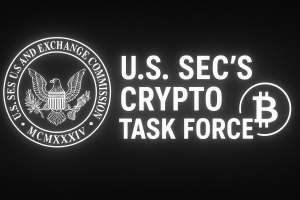
- The US Treasury undersecretary has highlighted Russia’s alleged use of Tether (USDT) to bypass international sanctions and finance its military activities.
- Adewale O. Adeyemo has urged policymakers to grant the US Treasury additional enforcement powers to address the rising threat posed by foreign cryptocurrency.
The US Treasury has raised concerns regarding Russia’s purported utilization of the stablecoin Tether (USDT) to circumvent international sanctions and sustain its military operations.
Undersecretary Wally Adeyemo voiced these apprehensions during a statement to the Senate Committee on Banking, Housing, and Urban Affairs. He stressed the necessity for additional tools to uphold national security.
Adeyemo’s testimony also underscored a broader issue of terrorist groups and rogue states exploiting cryptocurrencies to mask their identities and transfer funds clandestinely. He also cited instances such as al-Qaeda’s utilization of Bitcoin and transactions between the Islamic Revolutionary Guard Corps-Qods Force and Hamas to illustrate the escalating illicit financial activities.
Of particular concern to the US Treasury is Russia’s escalating reliance on alternative payment mechanisms like Tether’s USDT to evade sanctions, per the Crypto News Flash report. This trend poses challenges to the efficacy of sanctions and underscores the pressing need for a robust oversight and enforcement framework for cryptocurrencies and stablecoins. Adeyemo stated:
“We’ve seen Russia increasingly turning to alternative payment mechanisms — including the stablecoin Tether — to try to circumvent our sanctions and continue to finance its war machine. While we have had some success in rooting out illicit finance in the digital asset ecosystem, we need to build an oversight and enforcement regime that is capable of preventing this activity.”
US Treasury Seeks More Enforcement Powers on Crypto Exchanges
The US Treasury Department is urging policymakers to grant additional enforcement authorities to combat foreign providers of cryptocurrency services, as part of its efforts to bolster national security.
Deputy Secretary Adewale O. Adeyemo expressed concerns about the growing trend of actors concealing their identities and transferring resources through virtual currencies. Moreover, he made these remarks in written testimony ahead of a Senate hearing scheduled for Tuesday.
Adeyemo is also urging lawmakers to authorize the implementation of a secondary sanctions tool aimed at foreign digital asset providers involved in illicit financial activities.
According to Adeyemo, such a tool would enable the Treasury to enhance its targeting capabilities, addressing the challenges posed by technological advancements that have made traditional payment-related measures less effective in the context of virtual currencies.
Additionally, the Treasury seeks explicit authority to regulate major players in the digital asset space, including cryptocurrency exchanges. It also requests the power to take action against overseas crypto platforms that pose a threat to US national security while exploiting the nation’s financial system.
Adeyemo expressed concerns that without Congressional intervention to equip the Treasury with the necessary tools, the use of virtual assets by such actors will continue to proliferate.























